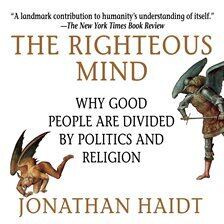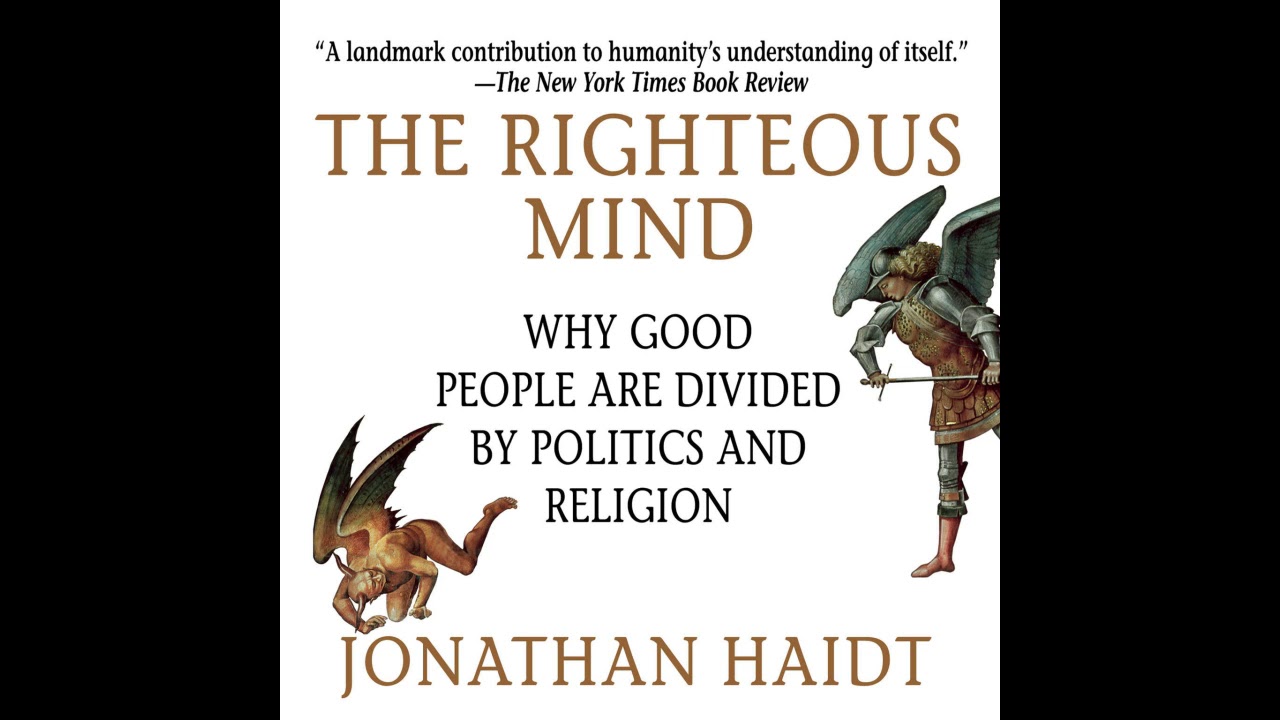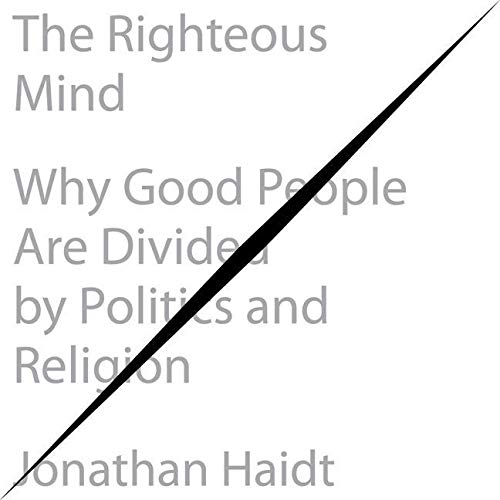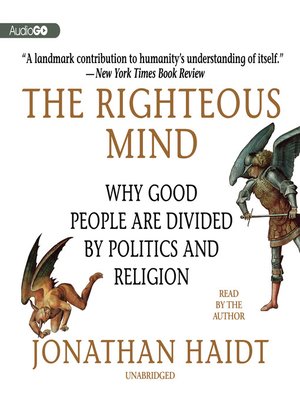Jonathan Haidt’s “The Righteous Mind” explores the psychological basis of morality and politics. It delves into why people have different moral beliefs.
Jonathan Haidt, a renowned social psychologist, offers deep insights into human morality and its influence on politics in “The Righteous Mind. ” This audiobook dissects the psychological mechanisms driving our moral judgments and political divisions. Haidt argues that intuition often guides our moral reasoning, and reasoning typically serves to justify these intuitions.
By understanding these psychological underpinnings, we can better navigate the complexities of human morality and politics. “The Righteous Mind” is a must-listen for anyone interested in psychology, ethics, or political science, providing valuable perspectives on why we think and act the way we do.
Introduction To ‘the Righteous Mind’
Jonathan Haidt is a social psychologist. He studies human nature and morality. He teaches at New York University. He has written many books. One of his famous books is ‘The Righteous Mind’. His work helps us understand why people disagree. He uses science to explain human behavior. Many people respect his ideas.
‘The Righteous Mind’ is about why good people fight over politics and religion. The audiobook explains how our brains shape our beliefs. It tells us about three main ideas. First, people are more emotional than rational. Second, our morals come from our group. Third, we need to understand others better. The audiobook is easy to follow. It includes stories and examples. It helps listeners think about their own beliefs. It is a helpful guide for understanding people.

Moral Psychology Explored
Jonathan Haidt explores the foundations of morality in his book. He identifies six key moral foundations: care, fairness, loyalty, authority, sanctity, and liberty. These foundations shape our moral beliefs and behaviors. People use different foundations to make moral judgments. Some may prioritize care and fairness. Others may value loyalty and authority more. This diversity explains why people disagree on moral issues. Understanding these foundations helps in bridging moral divides.
Haidt argues that intuition plays a bigger role in moral decisions than reason. Our gut feelings often guide us. We then use reason to justify our choices. This process happens quickly and automatically. Moral reasoning comes later. It supports our initial intuitions. This insight challenges the idea that humans are rational thinkers. Instead, we are intuitive first and rational second. Recognizing this can improve our moral discussions.
Divisions In Human Morality
People feel the need to care for others. This foundation makes us protect the weak. Empathy drives this moral foundation. It helps us avoid causing harm. This foundation bonds us with others. Acts of kindness strengthen community ties.
Fairness is about justice and equality. People expect fair exchanges. Cheating breaks trust and causes anger. This foundation ensures social cooperation. Fairness promotes trust within groups. It helps maintain social harmony.

The Role Of Religion And Politics
Group morality helps groups stick together. Religions often teach moral rules that strengthen bonds. These rules can create trust and cooperation. People follow these rules to show they belong. Strong group morals can lead to strong communities. But they can also create tensions with outsiders.
Political ideologies are shaped by moral foundations. Liberals and conservatives value different moral rules. Liberals often value fairness and care. Conservatives often value loyalty, authority, and sanctity. These different values can lead to political divides. Understanding these foundations can help bridge gaps. Both sides believe they are right because of their morals.
Moral Intuitions And Judgments
Jonathan Haidt uses the Elephant and the Rider metaphor to explain our minds. The elephant represents our emotions and instincts. The rider symbolizes our reasoning and logic. The elephant is stronger and often leads the way. The rider tries to guide the elephant. But the elephant has its own path. This shows how emotions often overpower logic in our decisions.
Emotion plays a big role in our moral reasoning. Haidt argues that we often feel before we think. Our gut feelings guide us in making moral judgments. Emotions help us connect with others. They build trust and understanding. Without emotions, our moral decisions would be cold and detached. So, emotions are crucial in understanding and making moral choices.
Challenges To Western Moral Philosophies
Rationalism often assumes humans act based on reason. Jonathan Haidt argues this is a myth. Emotions play a key role in decision-making. People justify actions with reason after deciding emotionally. This challenges traditional Western moral philosophies. Haidt’s research shows intuition often guides us. Rational arguments come later to support these feelings.
WEIRD stands for Western, Educated, Industrialized, Rich, and Democratic. Most moral psychology studies focus on WEIRD societies. Haidt believes this is limiting. Morality differs greatly across cultures. Western views are not universal. His work includes diverse cultural perspectives. This helps understand global human morality better. Different societies have unique moral foundations. These insights can enrich our understanding of moral behavior.
Applying ‘the Righteous Mind’
Jonathan Haidt’s ideas help people understand different views. Understanding why others think differently can reduce conflicts. Listening to others can make discussions more respectful. Finding common ground becomes easier. People work together better when they respect each other’s views. Haidt’s audiobook teaches us to value diverse opinions.
Social cohesion grows when people understand each other. Communities become stronger with shared values. Trust increases when people feel heard. Haidt’s audiobook helps people connect across differences. Empathy leads to better relationships. Stronger bonds create a unified society.
Reflections And Conclusions
The Righteous Mind explores why people disagree on moral issues. It shows that morality is rooted in our emotions. People have different moral foundations. Some value care and fairness. Others value loyalty, authority, and sanctity. Understanding these differences can help us bridge divides.
Moral psychology will keep growing. New studies will help us understand how morals develop. Technology will play a big role. We may use AI and big data to study moral decisions. This field will help us create better societies. Education and policy will benefit from these insights.

Conclusion
“The Righteous Mind” audiobook by Jonathan Haidt offers deep insights into human morality. It’s a must-listen for anyone curious about why people differ in their beliefs. Enhance your understanding of ethical behavior and societal divisions. Dive into this audiobook to explore thought-provoking perspectives.
It’s a valuable resource for personal growth and empathy.



